Summary of common game terms and their meanings
There are many game terms that are new to play we often see experienced gamers often exchange with each other. You are new and sometimes do not understand the terms that they speak to you.
The list below will include game terms and their meaning. You can find that term and see what it means to become a more discerning gamer and communicate better with your teammates and friends.
- Summarizing the term PUBG Mobile that gamers often use
- Top 11 most dangerous guns Counter Strike Global Offensive
- Guide to play Minecraft for free on the web
The meaning of common terms in the game
A
- AAA: Also known as Triple A, is often used to refer to games that are made on a large budget. Large and professional development teams or simply large publishers associated with game studios and producing products.
- Abandonware: Only a game is no longer officially developed or distributed by the author or publisher. Online games are usually no longer playable after the server is shut down, which is the most common type of Abandonware.
- Aggro: Abbreviation for Aggressive or Aggressive . Used to only act to lure enemies into your range.
- NPC / Artifical Intelligence: Only non-human controlled players in the game, also known as machines. People often say "stupid machine" is like that.
- Aimbot: A tool commonly used in first-person shooter (FPS) genre. Allows players to hit the target most accurately without having to aim. This behavior is considered fraud when playing both professional and semi-professional.
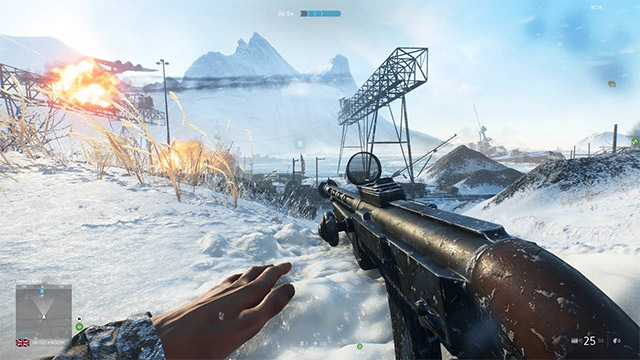
- Alpha game: The stage of developing a game. If Alpha is the first stage with incomplete features, then beta will be the next phase of Alpha.
- AOE (Area of Effect): Describes a skill that has a wide area of effect, be it healing or damage skills.
- Action Roleplaying Game (ARPG): Is a sub-branch of the role-playing adventure game that focuses on real-time combat rather than deep understanding of the plot and complexity.
- Asset flipping: This term refers to games created from virtual models of the season from an online store instead of having to be designed from scratch. It may sound unfair, but this method will save a lot of effort and time, even large NPHs will do it.
- Asynchronous Multiplayer: Only a game does not need all online players at the same time to be able to play that game. For example, playing chess via email for example, it is also a form of Asynchronous Multiplayer game.
- Avatar: Represents the appearance of a player in the game.
B
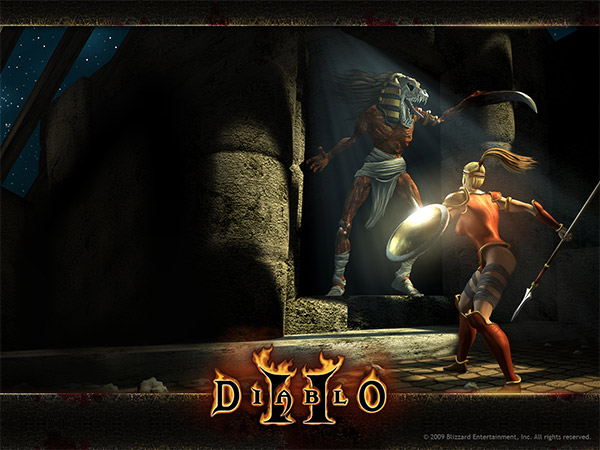
- Balance: Balancing the game, to balance the game is a process of adjusting the system parameters to achieve the balance according to the developer. In multiplayer games like League of Legends, balancing the game so that no one character or weapon or skill is too superior to the rest, leaving other players at a loss.
- Battle Royale: A genre of survival-style game with PUBG representing this genre, it is a variation of the Multiplayer series to find the last surviving player or last surviving team.
- Beta: The game development stage, at this time the game is still not at a balanced level and not yet fully featured. A trial is required to find the bugs before it can be officially released. You still often see the games often Open Beta to try it.
- Boss: Boss, an enemy that has a much superior power than other enemies, is often quite difficult for the player to destroy.
- Buff: Quite familiar with MOBA or MMORPG games. This is a word for a positive state that is temporarily applied to a player's character. For example, buffs increase armor, attack speed, damage . In game balancing, this is the action to increase the power directly or indirectly for a character or equipment.
- Bullshot: This is the word for a character image or game image to promote that game. And often it's not like the image you saw in the game.
C
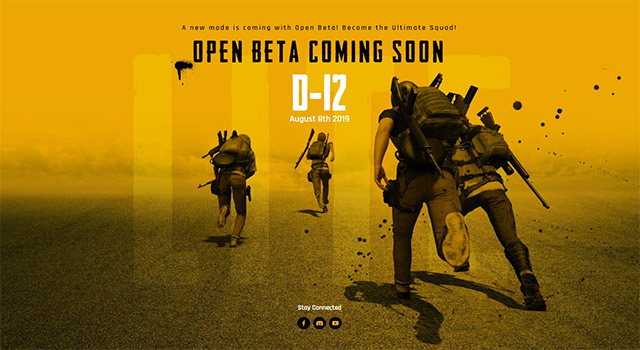
- Camping: "Camping" From pointing the player to a seat and waiting for enemies to come. In FPS games, camping is usually Sniper, hiding in places that few people expect.
- Class: Class character, usually only appear in MMORPG games with different skill classes, or the subject must be different. But in recent years, character classes have also been applied to shooters like Battlefield or Apex Legend.
- Checkpoint: An area in the game that when you go there, all your previous play history will be automatically saved or activated by you. If there is no checkpoint, you will have to redo the entire previous task.
- Clipping: Indicates a graphic error term when one object passes through another object, the person walks through the wall, holding the gun near the gun wall. Or wear a hat that still pierces.
- Closed / Open Beta: With Open Beta, anyone can participate in testing that game. Closed Beta is the opposite when players need to be selected.
- Combo: Short for Combination, just a series of actions in succession. The most common in the fighting game genre when combos are a series of consecutive attacks that, if successfully executed, will cause beautiful effects.
- Cooldown: Indicates cooldown, often used in MOBA or RPG titles.
- Crafting: Manufacturing, commonly found in RPG games. Indicates that the player can combine items and materials into a better item.
- Critical Hit: Critical hit , in some games, critical damage multiplies the damage multiplier or requires the player to hit a point to have that critical damage.
- Crowd Control (CC): The word refers to control the enemy in battle, in some games it will be called crowd control skills. Especially in MOBA games.
- CRPG: Short for Classic RPG, often referred to Western RPG games such as Baldur's Gate, Fallout, Planescape, Torment or newer titles like Wasteland 2, Divinity: Original Sin and Pillars of Eternity.
D
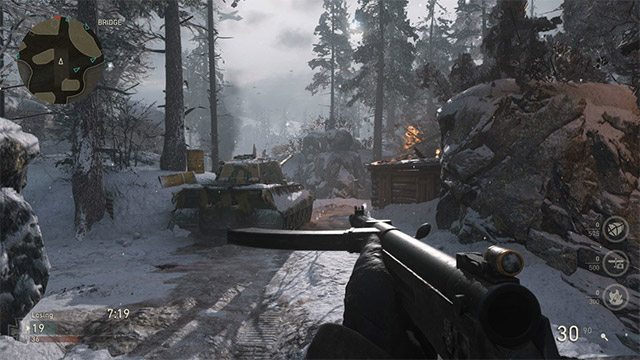
- Debuff: A temporary state that causes a player's character to be affected by a number of unfavorable effects. For example, the character is stunned.
- Dialogue tree: Dialogue tree is a diagram with many questions and answers that have been prepared for players to choose to activate other options from other characters.
- Downloadable Content: Abbreviated as DLC, is a term that refers to the content added to the main content of the game that the publisher separately with the price they offer. DLC can be as small as a new weapon, a new hat or bigger as a whole new game.
- Damage per minutes / second (DPM / DPS): The average damage that the character can output in a corresponding time unit. Often used to optimize your character or to compare between many different weapons.
- Dungeon Crawl: Only one game genre focused on players fighting, clearing the monster caves.
E
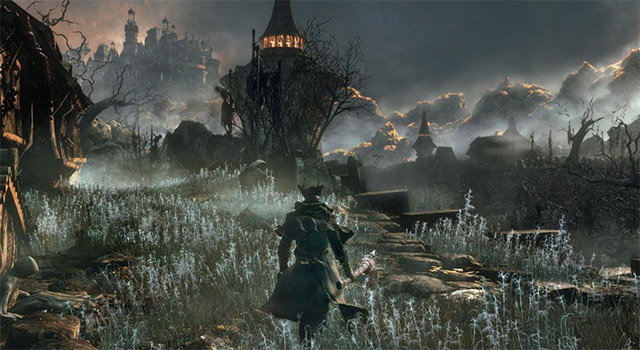
- Elo: Only a fair match system in competitive and ranked games. This system will arrange players of the same level to compete against each other to make the game fairer.
- Elo hell: A position that no one wants to get into the Elo rating and scoring system. This is a term for the situation when a player wants to climb the ranks of the game system, but not be constantly defeated.
- Emergent Gameplay: Only games without script due to a complex interconnected system. For example, in Rimworld, damage to crops will result in people having to eat their dogs to make them sad and fight with other players. This is entirely not pre-programmed by the game system itself.
- Emulator: Emulation, only emulation software that runs an operating system or game console on a system that is not officially supported. BlueStack, for example, runs Android on a Windows computer.
- Endgame / Elder game: Also known as "Island Break". Only when the player has completed all the main tasks in the game or reached the highest level. In MMORPG games, the main task is over, you will have to go on a side quest to earn better items or earn more money to trade.
- Engine: Indicates a built-in software used by developers to make different types of games for a single game only. Unreal Engine or Unity are game engines used to create many different games on different platforms.
- Experience Points: Abbreviated EXP, this is the experience points that players earn after killing enemies or completing quests in the game.
F
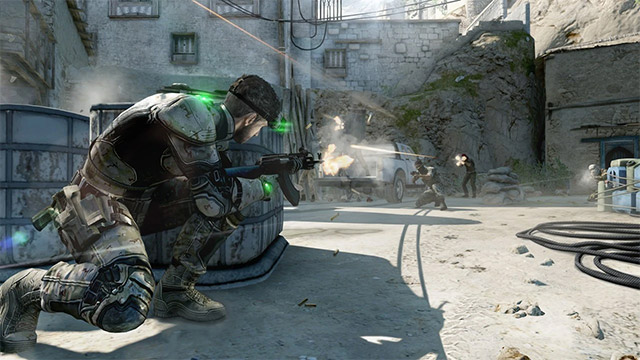
- Free to Play (F2P): Only free games that you don't need to buy can play. But there will still be Microtransaction to make money back.
- Farming: Only the player to an area filled with monsters to gain experience points, or the area has many resources to continuously exploit.
- Feed: Commonly used in MOBA games, the most popular is League of Legends. Action only one player constantly dies at the hands of the enemy. Usually, the players of Feed continuously are accidentally and intentionally, but often only for newbie.
- Fog of war: A term that refers to fogs that obscure the activity of an enemy or enemy units in turn-based or time-based titles. The most typical is Empire (AOE).
- Field of view (FOV): The word indicates the distance of sight of the character in the game. Usually included in the game image settings. The larger the number, the higher the amount of visibility.
- First Person Shooter (FPS): Only first-person shooter.
- Frames per second: abbreviated as FPS, but not the game genre but the image speed of the game to the screen. Exactly Frame Per Second, the higher the number of frames, the smoother the motion, the most standard number is from 30 fps to 60 fps.
- Frag: A grenade that explodes or is a Frag Grenade . Can only act grenades to kill the enemy.
- Frame Rate: Only the number of separate frames appears on the screen.
G

- Ghosting: Only a term commonly used in games with teammates. A dead player will tell the living teammates information, location of the enemy, the most typical is Counter Strike.
- Glass Cannon: Only a term for a character, vehicle or unit in the game that has a massive attack stat, but the amount of blood is very low that gamers often use from paper blood or weak health.
- Gone Gold: If a game already has Gone Gold, then the development process is complete and ready to be sold.
- Griefer: Only one player annoys or annoys other players intentionally.
- Grinding: Only an action is repeated to exploit resources or experience in the game. For example, going to an area where monsters are weaker than a character can farm more easily.
HOUR
- Head up display (HUD): A part of the user interface in the game that is always displayed when playing. For example, display weapons, blood bars, armor .
- Head Glitch: Indicates the action of the player hiding behind an obstacle and only poking their head out.
- Hitbox: Used to indicate which part of a character has been hit.
J
- Jungle: Jungle , refers to the role of gamers in the MOBA game genre. The jungler usually does not go with his teammates on the main roads but will go inside the jungle area to kill monsters, level up, earn money. Also go gank or not is up to kindness and accommodation.
K
- Kiting: Also known as Kite Flying, refers to the technique of long-range players to lure the enemy, and often will lure the short-range enemies away or attack and move continuously without letting the enemy can touch people.
L
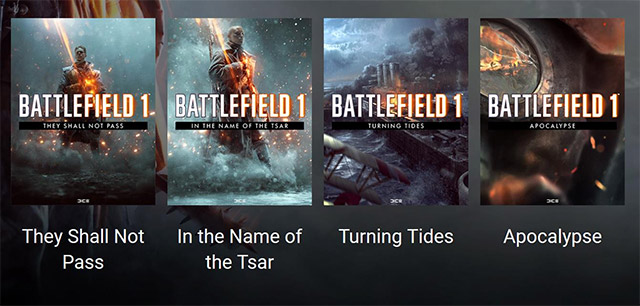
- Lag: One of the most common words in the game. Only latency phenomenon when the player takes action but there is a certain delay, with the actions of the characters in the game. Lag in games is often due to the quality of the connection is affected.
- Last hit: In some MOBA games, players will receive gold when destroying a soldier or monster with the final attack. Last hit will play an important role in succeeding in the game.
- Limit break: Used only in fighting games when the character has reached the limit and will launch powerful attacks. From the ultimate moves in the Final Fantasy series.
- Loot box: A virtual gift box containing many secret items in the game.
M
- Macro: A tool that can help run an in-game action command automatically. Usually in the genre of RPG gamers, they often use macros to create a continuous item. In shooters, macros are almost considered fraudulent.
- Mana: Often used in games with fantasy elements. Mana has only one source of magic power to cast spells, no mana will cast it.
- Matchmaking: Only the lobby system of multiplayer games. Lets search matches with players of the same level or simply check enough people for your match. Typically PUBG Mobile and the Arena of Truth.
- Mechanics: The mechanism of action of the game characters, which is decided by the game designers.
- Melee: A term referring to melee weapons, or a form of fighting that forces you to close to the enemy to be able to attack. Or use your bare hands or weapons.
- Meta: Only the strategy is in that game, especially in the highly competitive games. Most commonly in League of Legends and DTCL, every new update to these titles will change the meta game.
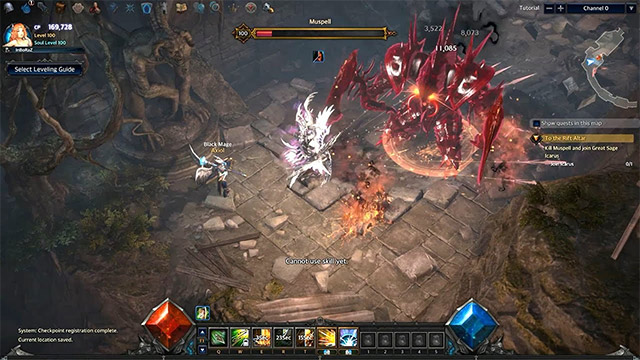
- Metroidvania: A series of games in which the world is often connected rooms. Usually at the beginning of the game, only a small part of the map will appear, after which you will have to gradually explore the world in many different ways.
- Microtransaction: Only transactions that use real money to exchange virtual items in the game.
- Min-Max: Only develop your character and focus on one indicator and ignore the rest, causing imbalance for your character.
- Massively Multiplayer Online games: MMO for short, a genre of game with a lot of players, and usually RPG games.
- Matchmaking Ranking: Abbreviated MMR, similar to Elo.
- Mini-boss: A game term that is just a small boss type, not a "boss" boss, stronger than normal enemies and weaker than bosses.
- Multiplayer Online Battle Arena: Short for MOBA, some typical examples are League of Legends, Dota 2, Lien Quan Mobile.
- Mobs: The term Mob refers to the basic enemies in the game. Unless they are Boss or Mini-boss, the rest are all mobs.
- Mod: The word tool helps players change game data, doing things that many other players cannot do. However, you should use the Mod in the offline games only.
N
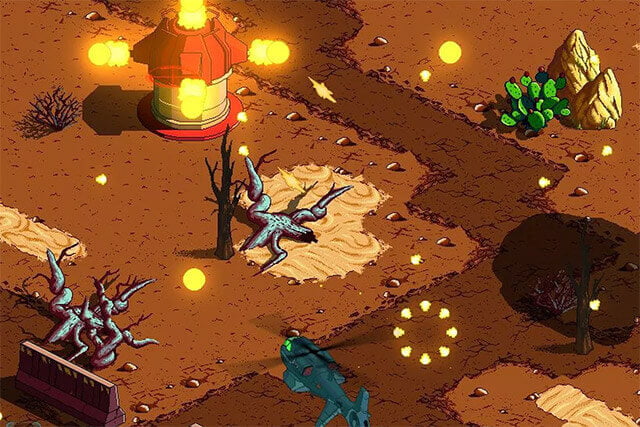
- Nerf: When a new game update comes from the publisher of a certain game and weakens certain characters, weapons, or classes, it is called a power nerf.
- New Game Plus: It turns out that having a lot of games when the main story is completed will open a different game mode with the same story but it will be much harder. Still the monsters but they will be more buffalo, stronger .
- No Scope: The term used to refer to when you destroy the enemy with a gun, usually a sniper gun without the sight of the scope, it will be called no scope to show your pro level.
- Noob: Newbie's abbreviation, only new players in the game.
- Non-Player Character (NPC): Only all non-enemy characters in the game that you cannot control. Or you can call them AI.
O
- Over-Powered: Abbreviated as OP, a character, a skill or a weapon is too strong compared to other things in the game.
- Open World: Only open world titles, the game allows you to explore the world in the game comfortably outside the plot and not divided into many specific game screens.
- Overworld: The term refers to an area connecting different levels of the game and often you have to return to this area on a regular basis.
P
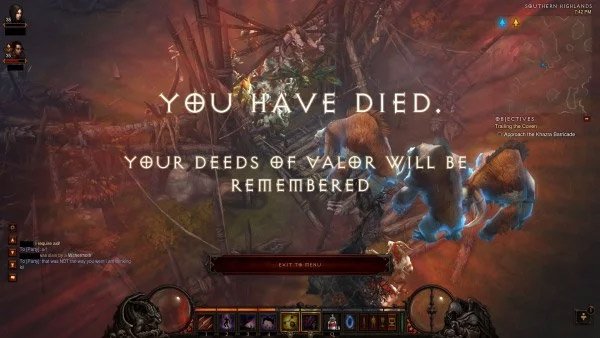
- Patch: An update, or called a patch. There are often new updates on characters, weapons, costumes, maps . Everything new in the game, or just updated to fix bugs.
- Perks: The term refers to a character's advantage with beneficial effects. For example, in RPGs, characters that lose blood below a certain percentage will gain attack power, something like that.
- Persistence: The character's action has lasting consequences in the game. For example, if you destroy a building in the game and it does not revert to its original state when you log in and out, it is permanently valid.
- Persistent World: The world in the game continues to grow even if you don't interact with them, like some farm games.
- Ping: A measure of network latency in the game, calculated by the time it takes to send a message from your computer to the server that is connecting and vice versa. The higher the ping, the more frustrating it will be for the player because of the lag.
- Player Character: The character the player controls in the game. Characters based on the plot and characters created individually by each class.
- Power Creep: When a character, weapon . is newly added to the game and has very powerful units or skills that make older things weak, it is called power creep.
- Procedural Generation : Also known as Random Generation, is a design technique that creates content based on a certain algorithm. That means the game can create new levels, new items, and characters according to a developer's built-in formula,
- Player vs Environment: Short for PvE, when players attack characters who are not controlled by other players, it is called PvE combat.
- Player vs Player: Short for PvP, when you play against other online players.
- Pwn: Also known as Pwning, is the term game used when one player defeats another.
Q
- Quick Time Event: abbreviated as QTE, a term that refers to in-game actions to challenge the player's reflexes by displaying a button that the player must press quickly for the character to take action in a short period of time. .
R
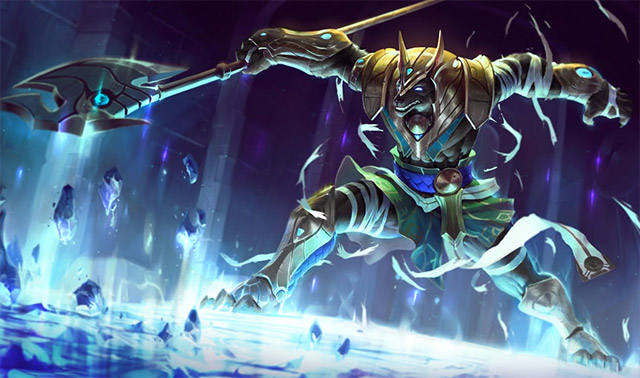
- Raid: The term refers to a task that requires a group of online players to perform together by overcoming challenges. Raid: Shadow Legends is an example game.
- Ranged: The term game refers to weapons, or attacks from a distance. Archers in the game are also called Range, or bow or crossbows, or remote attorney is also called Ranged.
- Respeccing: Stands for respecialising, also known as "Bleaching" in the swordplay game. This is the act of erasing all of your character's skill points to put together. Navigate through another character class.
- Review bomb: The term refers to the action of a group of people trying to underestimate a game in order to lower the rating on the game store. This action is often used to combat developer actions.
- Roleplaying Game: Short for RPG terminology. Only the storyline role-playing games, the player will choose his character according to the class, what play style, how the skill. Do missions according to the plot, review experience, upgrade skills .
- Real-Time Strategy: Short for RTS, only strategy games where players control units in the game to move and fight. The AOE and Starcraft series are an example of this term.
S
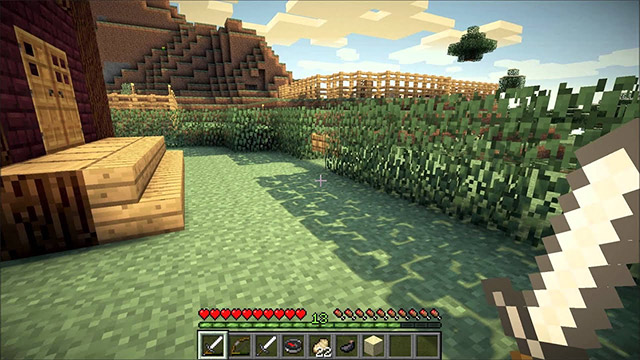
- Sandbox game: The term refers to the open world game genre but does not have a clear goal for the player to make. The most typical example for this series is Minecraft.
- Save Scumming: Just the player reloading the game repeatedly when making inappropriate decisions to avoid consequences.
- Scrim: The term indicating friendly match between two teams does not affect their rankings in the game.
- Shovelware: The term only a computer software must be installed to play a certain game. For example, Garena is a must-have shovelware if you want to play League or FIFA Online, or you have to install Steam to play Dota 2 or CS: GO.
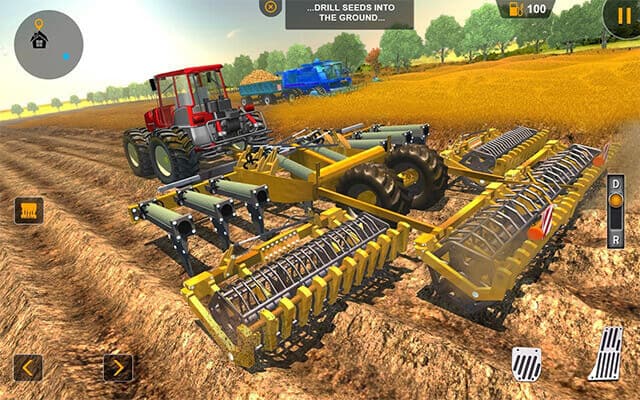
- SIM: Short for Simulation term, also known as simulation game, is often used to simulate a certain aspect of real life. For example Farm Simulator is about farm simulation, Euro Truck Simulator is truck driver simulation.
- Single-Player: The term refers to games or modes that can only be played by 1 person, as opposed to multi games when there are many people playing at the same time.
- Smurf: The term refers to experienced players who use a new account to play with inferior players to have a victory called Smurf.
- Speedrun: Only one kind of challenge for players to try to complete their tasks quickly. Called Speedrunner, they often take advantage of the game's bugs to complete their game quickly and easily.
- Splash Damage: Is a form of AOE damage but will only affect units near the central collision point only.
- Support: It is no stranger to League of Legends gamers, and in a multiplayer game, support plays a role in supporting tasks such as blood buff, damage support, ammunition support . Benefit for teammates.
T
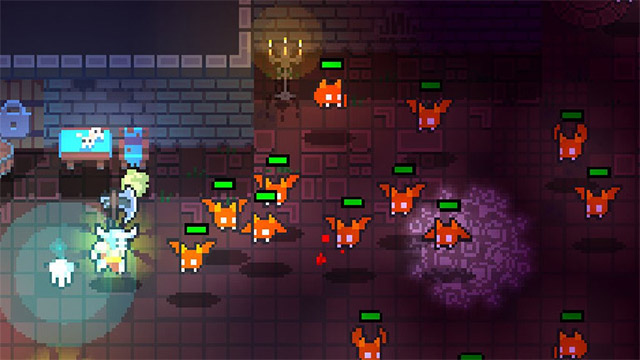
- Tank: Also known as a tanker, in multi games, the tank mainly plays the role of attracting and carrying damage from enemies for their allies to cause damage and protect allies from the source of enemy damage. Tanks often have large health and large amounts of armor.
- Telegraphing: The term only when the enemy or anything that is detrimental or about to attack you shows a certain signal, this phenomenon is called telegraph. It helps players prepare to be able to dodge in time.
- Theorycraft: The term refers to analyzing data in the game and creating the most perfect strategy.
- Toxicity: Refers to bullying or bullying of one player or a group of players against other players only by acts of bullying or swearing .
- Turn-based: Turn-based game, very similar to traditional board games where one turn after another. In stark contrast to RTS games, real-time strategy games.
V
- Vapourware: The term used to refer to games published a long time ago but not yet officially launched and often abandoned, some still disappear without leaving anything.
- Visual Novel: Only games that tell stories using images and chat, typically Anime games, for which the character asks you to answer.
W
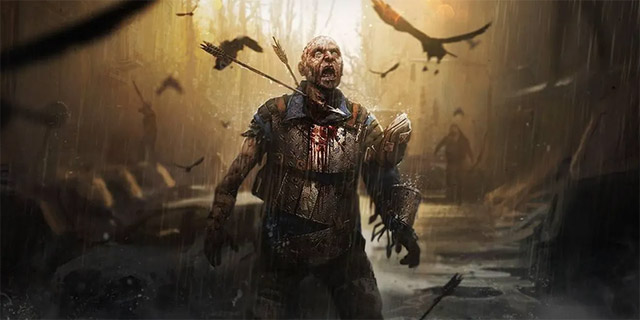
- Walking Simulator: The term refers to a type of game for users to explore the world without the purpose of winning anything.
- WASD: Only the 4 most popular character navigation keys in the game. Especially on the first-person game titles. W is going straight, S is backing, A is left, D is right.
- World vs World: Short for WvW, refers to game battles between players who come from different servers.
Share by
Micah Soto
Update 19 November 2019